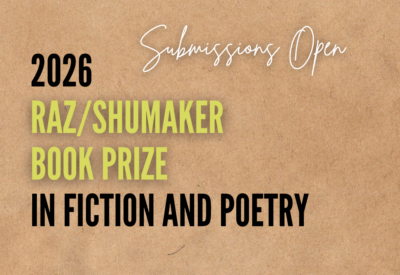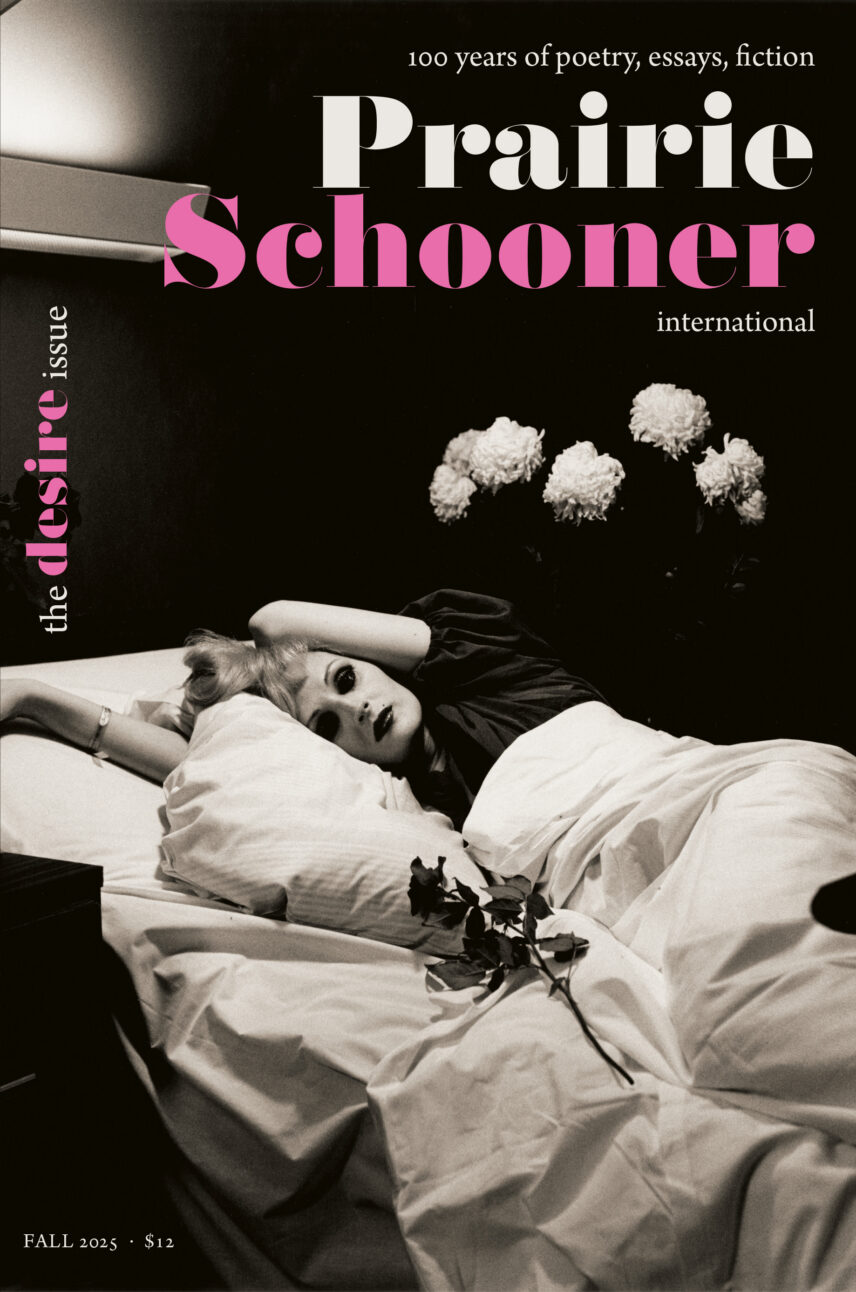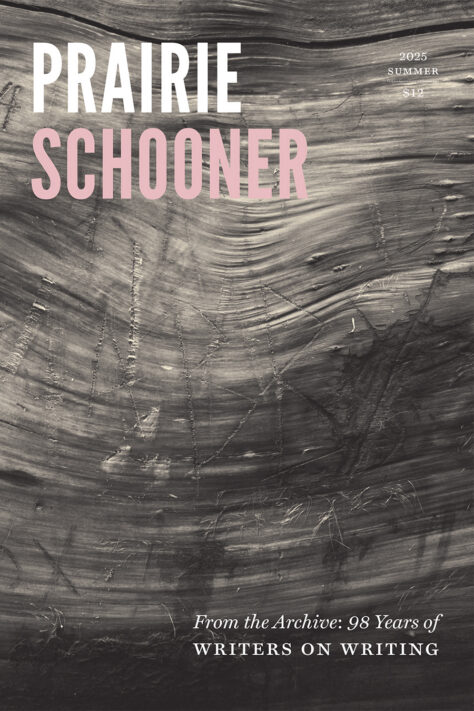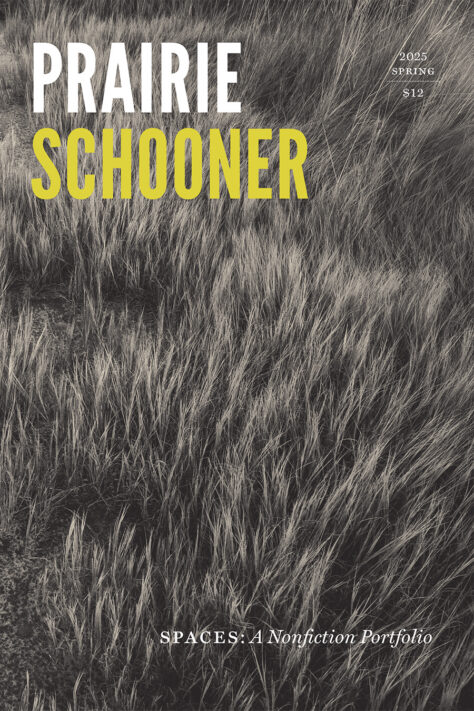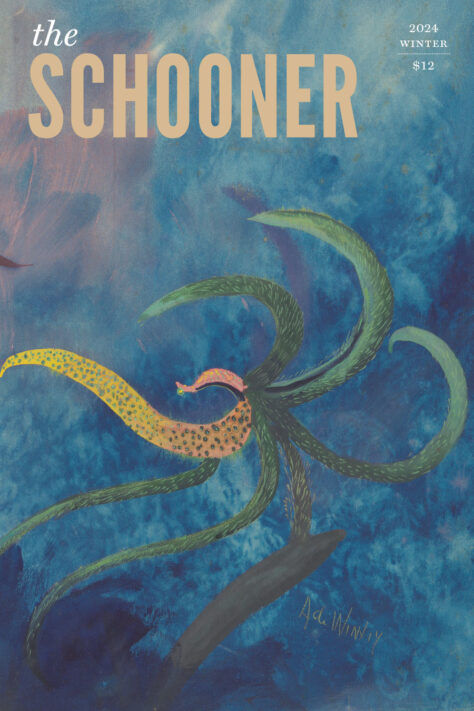Current Issue
Fall 2025 Volume 99 Number 3
Featuring a portfolio of New Trans Writing, this issue includes work by: Cynthia Carr, Terese Marie Mailhot, Alissa Nutting, Leslie Zemeckis, Jai Dulani, Ell Peck, Ilana Masad, Skyler Melnick, Luca van der Heide, Ben Freedman, Fayssal Bensalah, Lane Michael Stanley, Migwi Mwangi, Sharon Olds, David Calogero Centorbi, David Hopson, Elizabeth Metzger, Ted Kooser, Mag Gabbert, Christian Bancroft, John Surowiecki, Thomas Kneeland, Aishwarya Sahi, Rebecca Griswold, Timothy Schaffert, Oliver Evans, Apollo Chastain, Oliver Brooks, Zoe Tuck, அவ்ரீனா AVRINA, James Brunton, Ava N. Winter, Joan Tate, and Alyson Favilla.
Cover Photo: Candy Darling on Her Deathbed, 1973. © 2025 The Peter Hujar Archive / Artists Rights Society (ARS), New York.
Subscribe Buy NowRecent Issues:
Print Issue Excerpts
Poetry and Prose from recent issues and the archive

Sisterhood of Dirt

Can We Meet Again?

Like So, Like So




